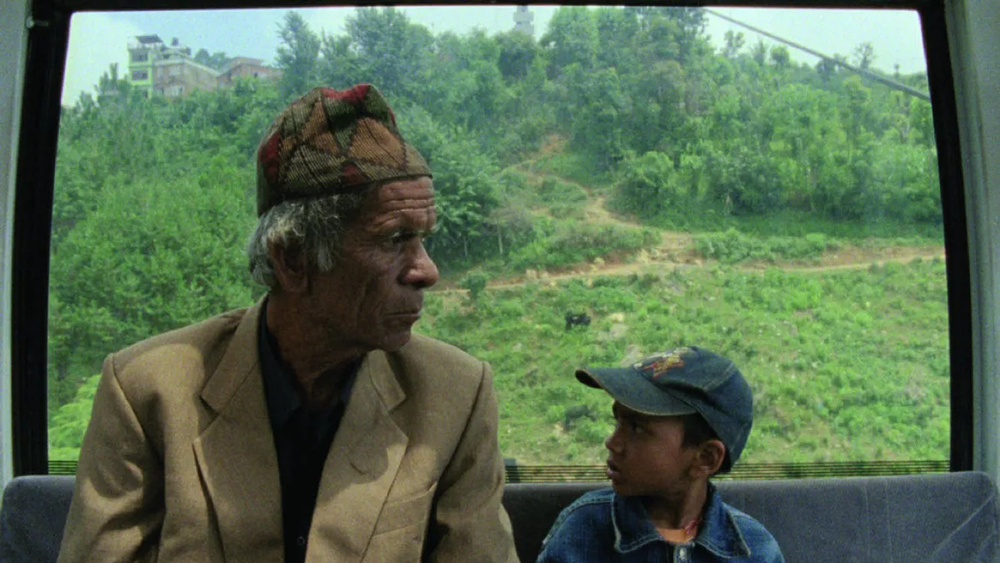Pity the person who was tasked with putting together the theatrical trailer for Stephanie Spray and Pacho Velez’s Manakamana (2013): since everything resembling “action” in the film can be boiled down to about a minute and a half, the marketing material can feel, absurdly, like a bit of a highlight reel. To be fair, it’s impossible to convey a sense of Manakamana in brief, when elapsed time is so foundational to its structure.
Set entirely in a Nepalese cable car, the 118-minute runtime is made up of 11 uncut shots, each a little over ten minutes long—that being both the duration of one end-to-end cable car trip as well as the length of a 16mm roll of film. A fixed camera records the passengers who, during the first half of the film, are making the final leg of their pilgrimages up to Manakamana Temple, bypassing the ancient mountain route that would take hours to hike.
Some of the passengers hardly speak for the entire ten minutes they’re being filmed, their offerings—flowers, a live rooster—just out of frame in their laps. Others are chatty, like a group of teenage boys or a trio of old women whose retelling of the Manakamana legend is all the context viewers receive about where the travelers are headed. At one point, the only passengers in front of the camera are a group of goats destined for an untimely end as temple sacrifices. The second half of Manakamana then focuses on the return trips: a tourist who’s slacked off on journaling; musicians tuning their instruments; happy worshippers licking ice cream as it melts.
There is a dearth of information beyond these superficials. Why would a bunch of teenage boys be going to the temple in the first place (and where did they get the mewling kitten they’ve inexplicably brought along)? Who is on the mind of the serious woman traveling alone with a large basket full of flowers? In the short time spent with each carload, one becomes invested in the passengers, attentive to their gestures of devotion, their humor, their expressions of love. Watching them at length becomes its own sort of privilege; we don’t often get the chance in our normal lives to stare at strangers with such intense attention. But given the invitation to do so, it’s a small and lovely wonder how quickly we become curious about, and invested in, people we otherwise know nothing about.
A project of the Sensory Ethnography Lab at Harvard University—the program that also produced Sweetgrass (2009) and Leviathan (2012), and which is known for striking technical and narrative innovations—Manakamana is a documentary with a convenient and clever premise. But over its runtime, it develops beyond its structural novelty, becoming a film that is also about sacrifice and faith; contemplation and projection; the exotic and the banal. It is, in culmination, an immensely moving and immensely personal experience. Pity, also, the writer who attempts to describe it.
Manakamana screens tonight, April 25, at Light Industry. Its co-director Pacho Velez will be in attendance for a Q&A.



